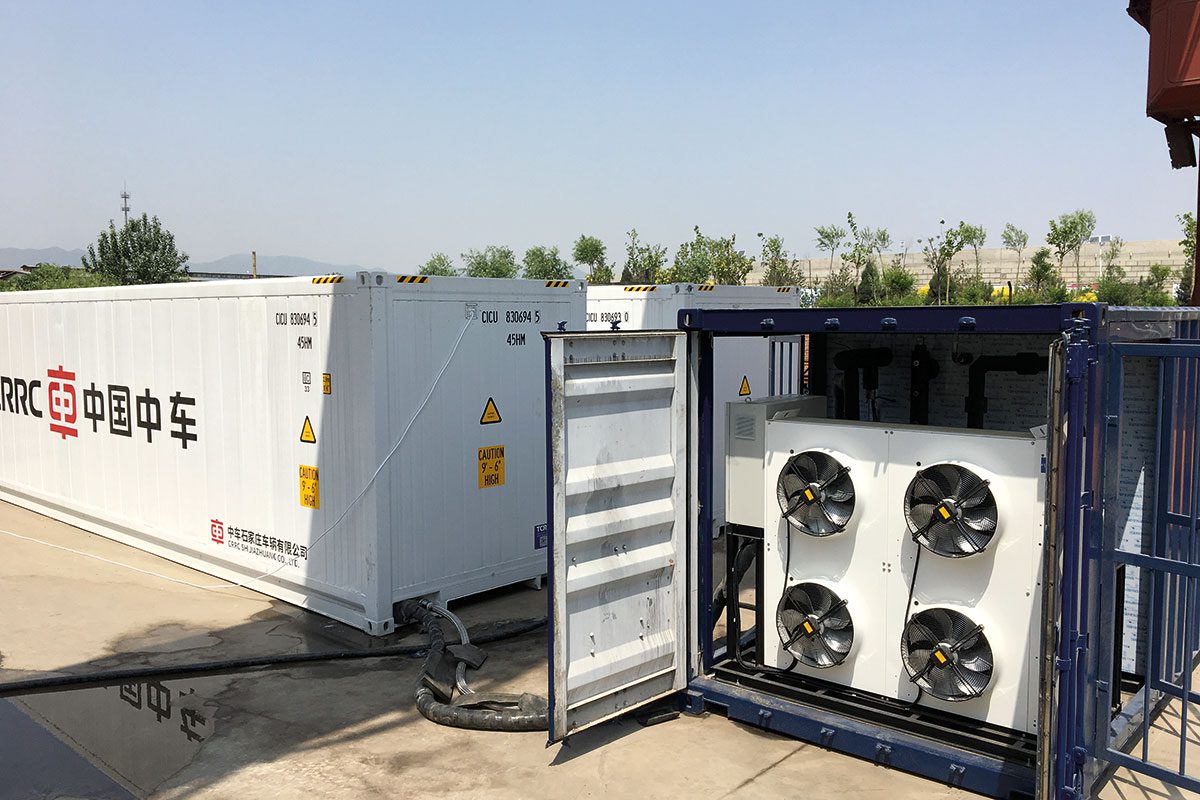University of Birmingham experts have worked with one of the world’s biggest railway rolling stock companies to develop the first-ever shipping container using materials that store and release cold energy.
Using phase change material (PCM), Birmingham scientists and their counterparts at CRRC Shijiazhuang, in China, have developed a ‘refrigerated’ truck-to-train container that is easier and more efficient to operate than conventional equipment.
Once ‘charged’, PCM inside the container – which can be transferred from train to truck and vice versa – can keep the inside temperature between 5-12 ˚C for up to 120 hours. The technology has recently completed commercial trials carrying real goods for 35,000 kilometres of road and 1000 kilometres of rail transport across different climate zones.
Professor Yulong Ding, Director of Birmingham Energy Storage Centre, said his group was “proud to contribute to the development of safe and clean low carbon energy technologies,” which will help to reduce the energy burden on the planet and tackle climate change.
Cooling is essential to modern society, which already causes twice the global greenhouse emissions of shipping and aviation combined with the cold chain being a significant cause of pollution. Increasing demand for cooling will result in spiralling energy usage with a potentially disastrous environmental impact, if left unchecked.








